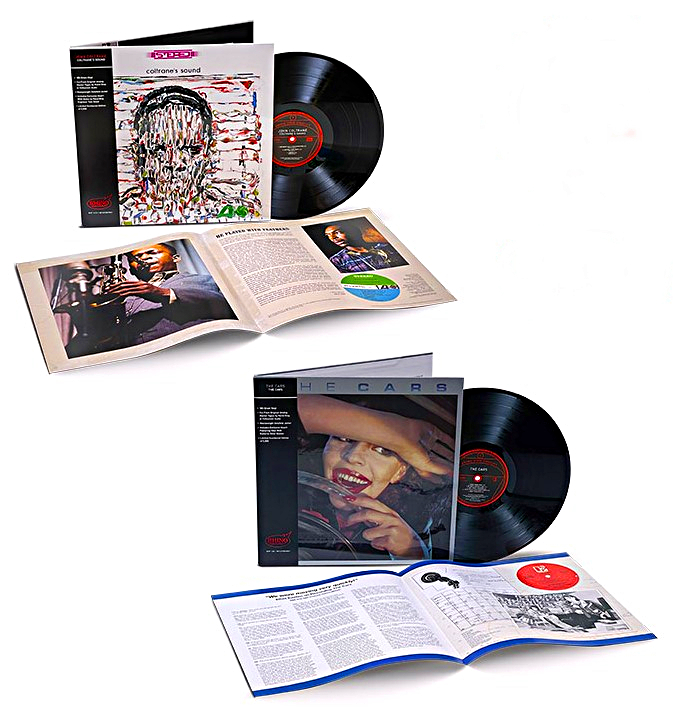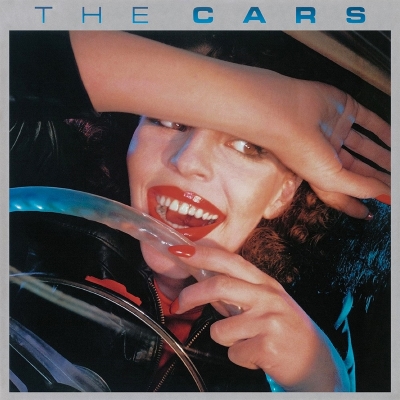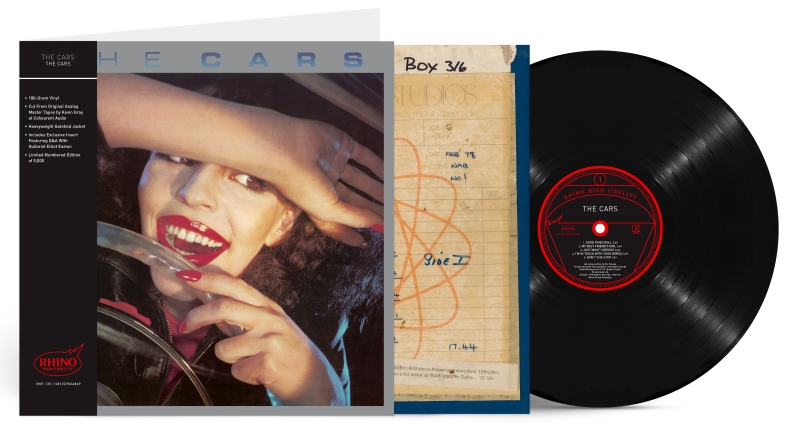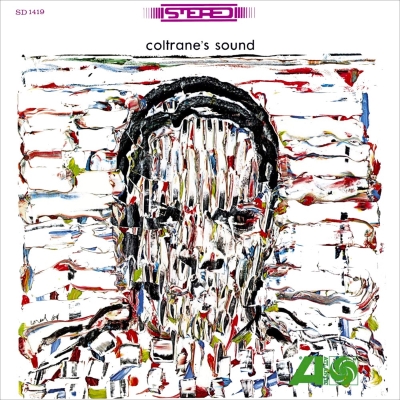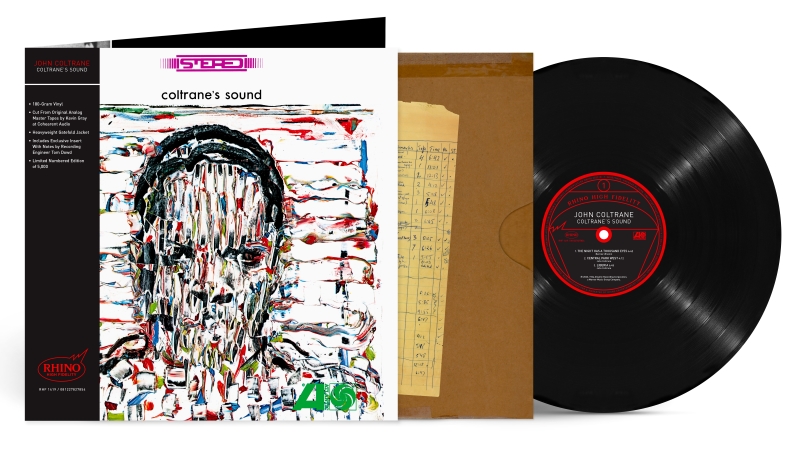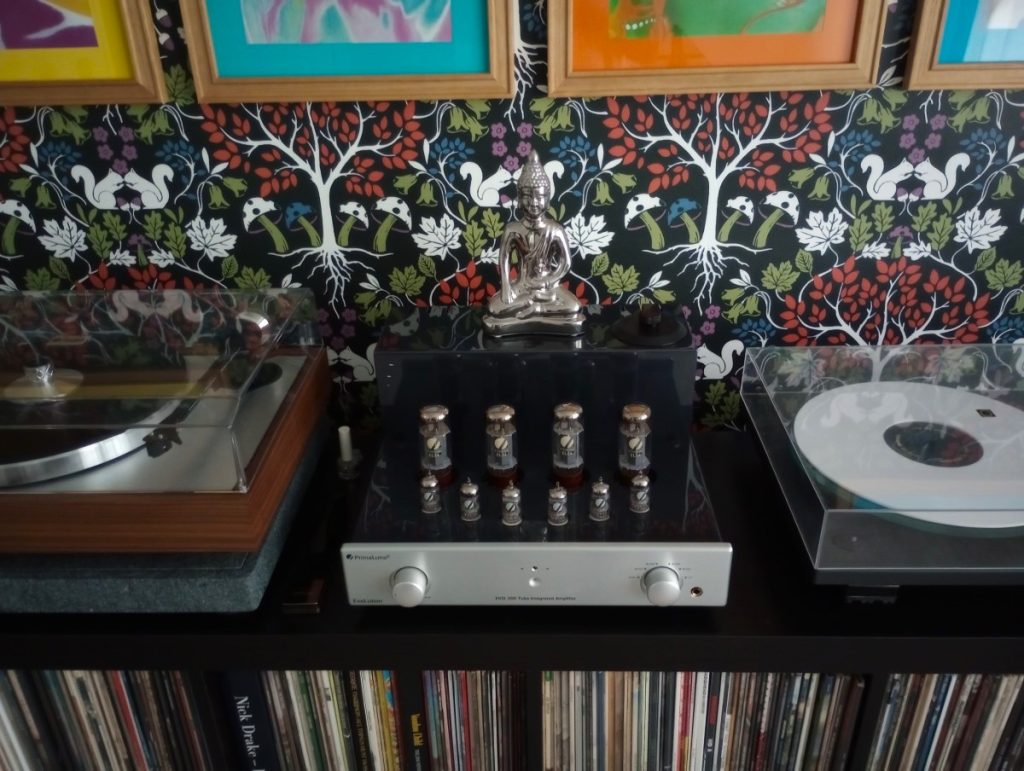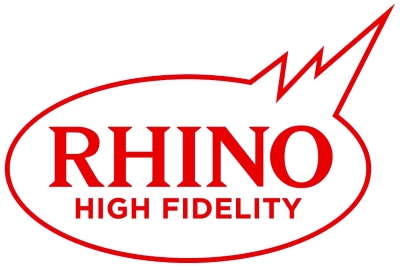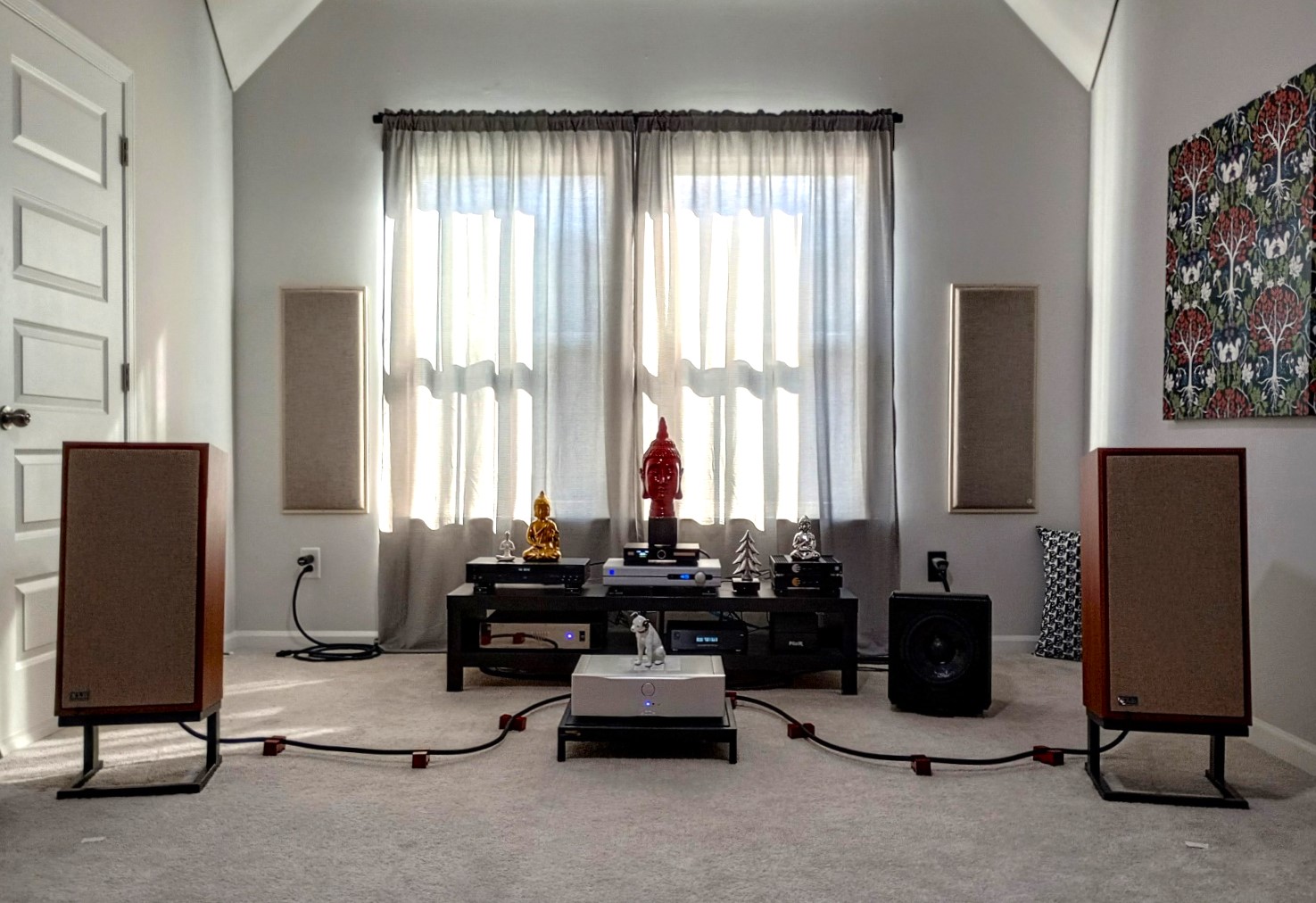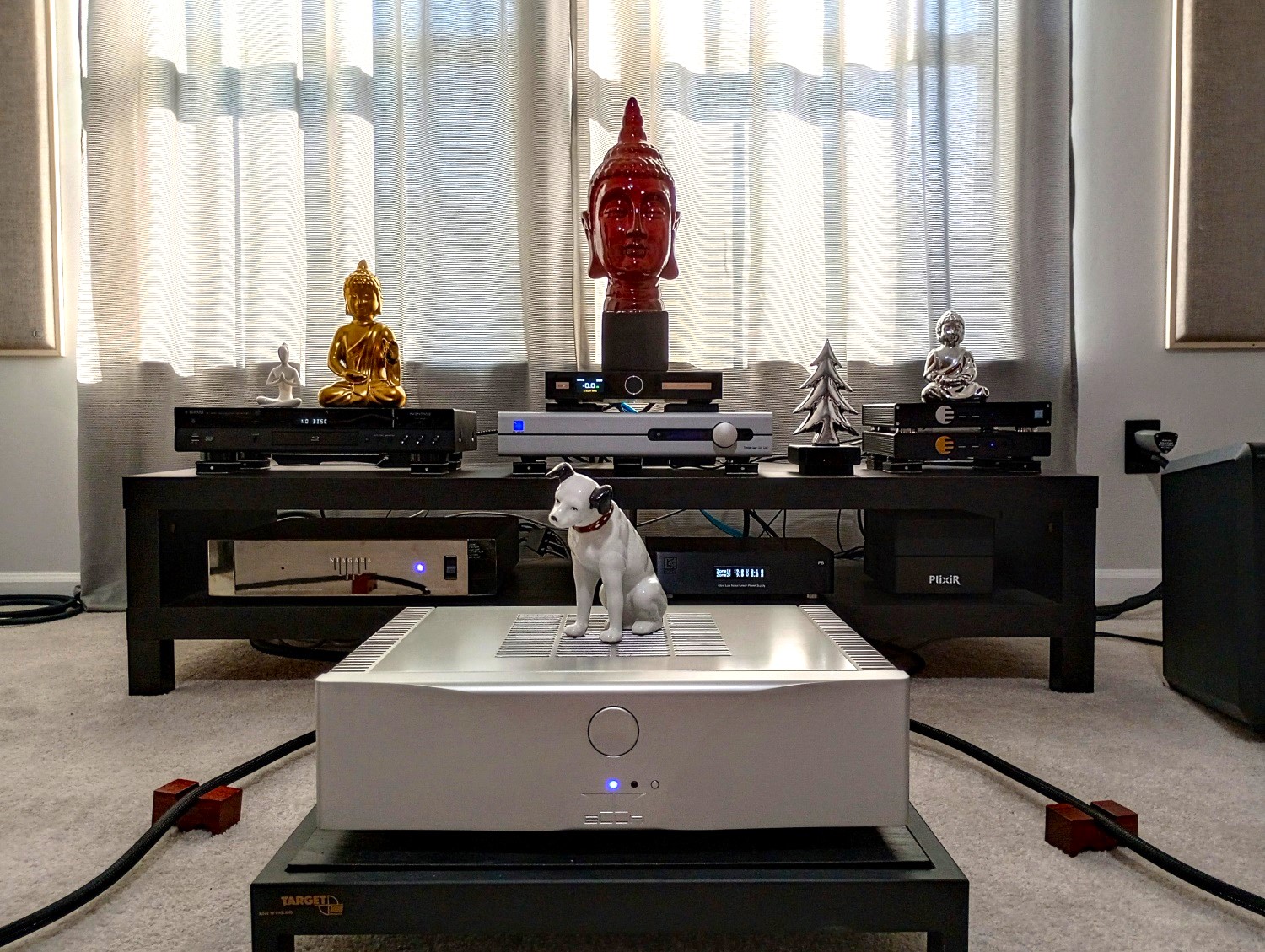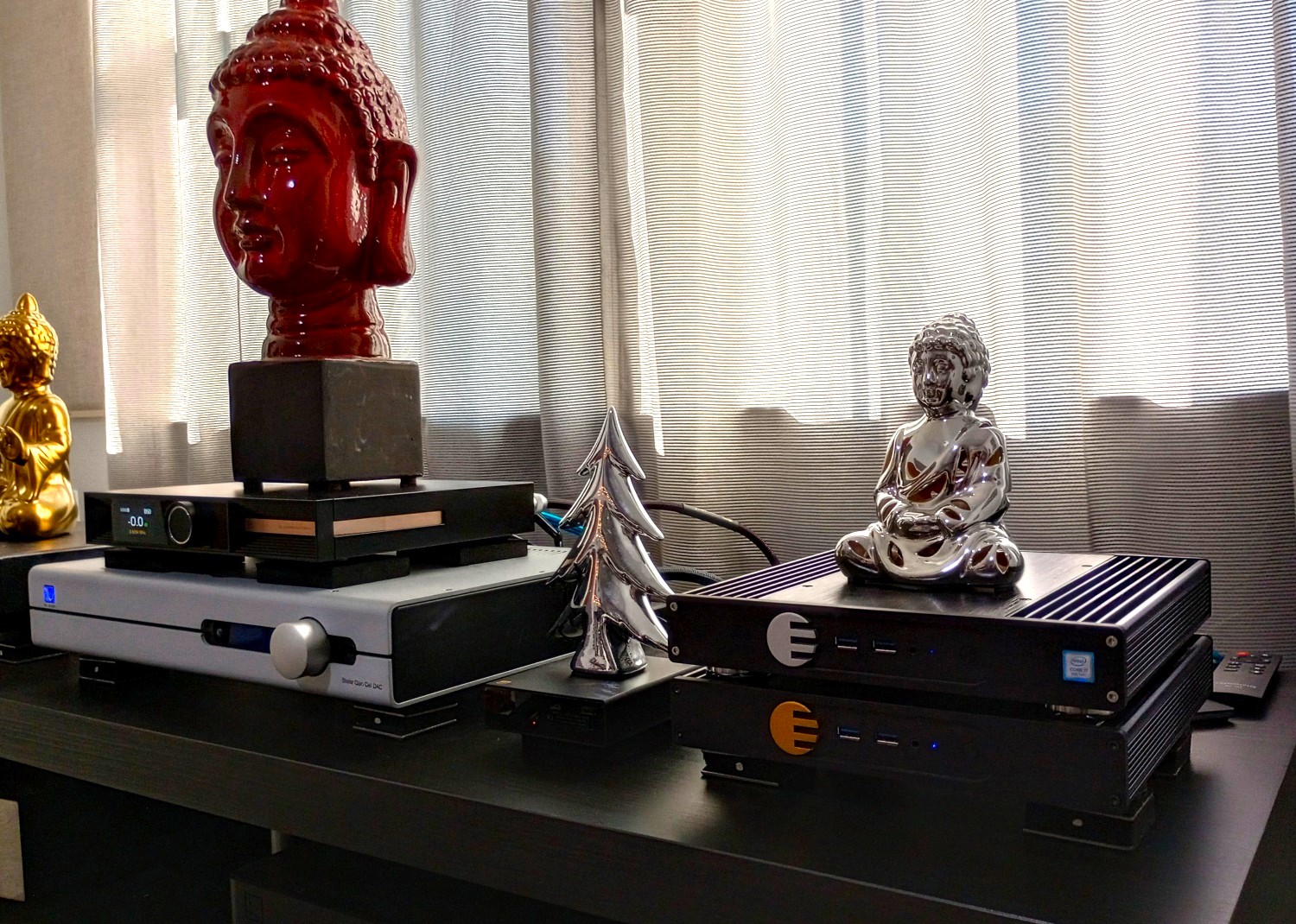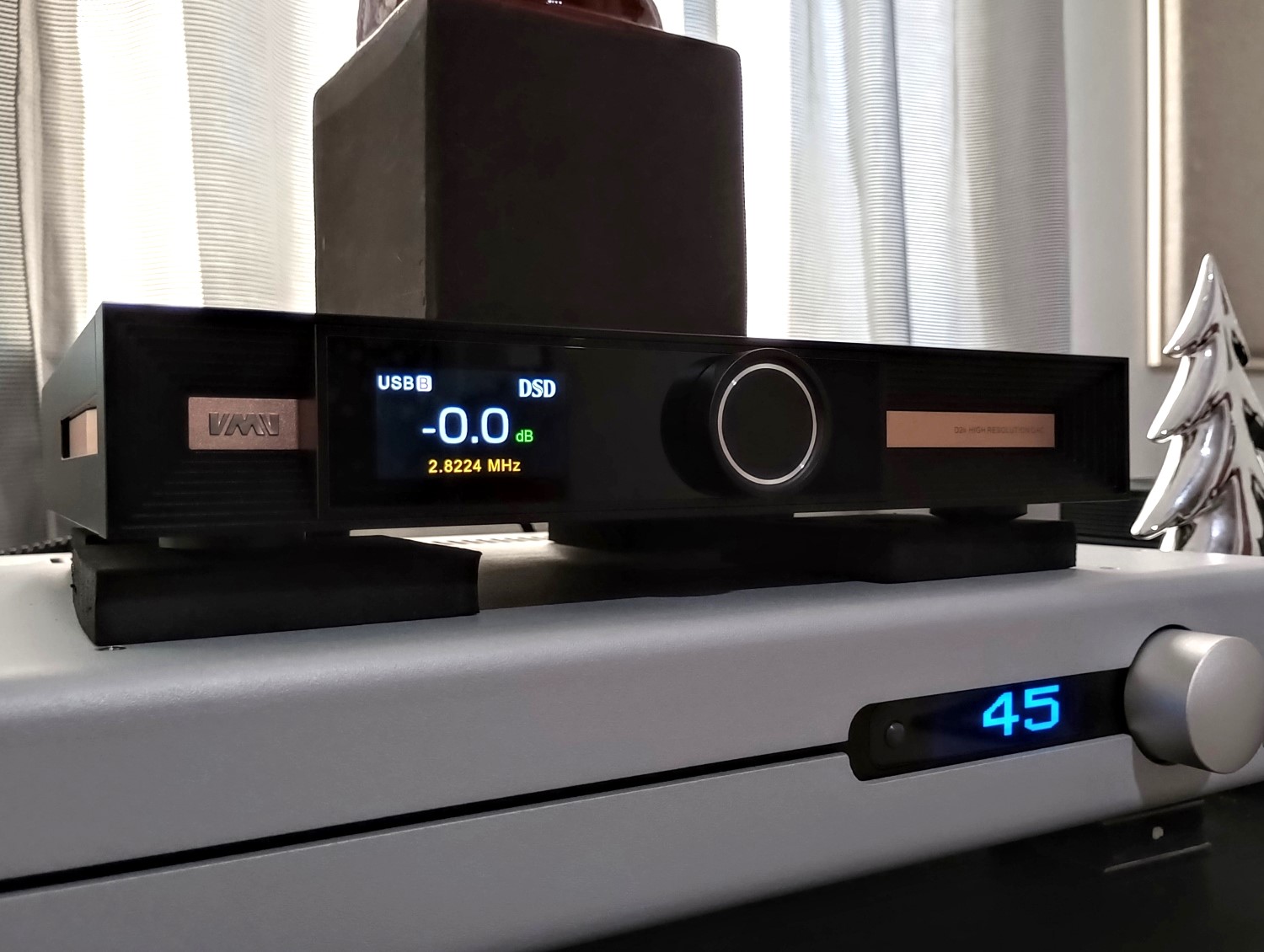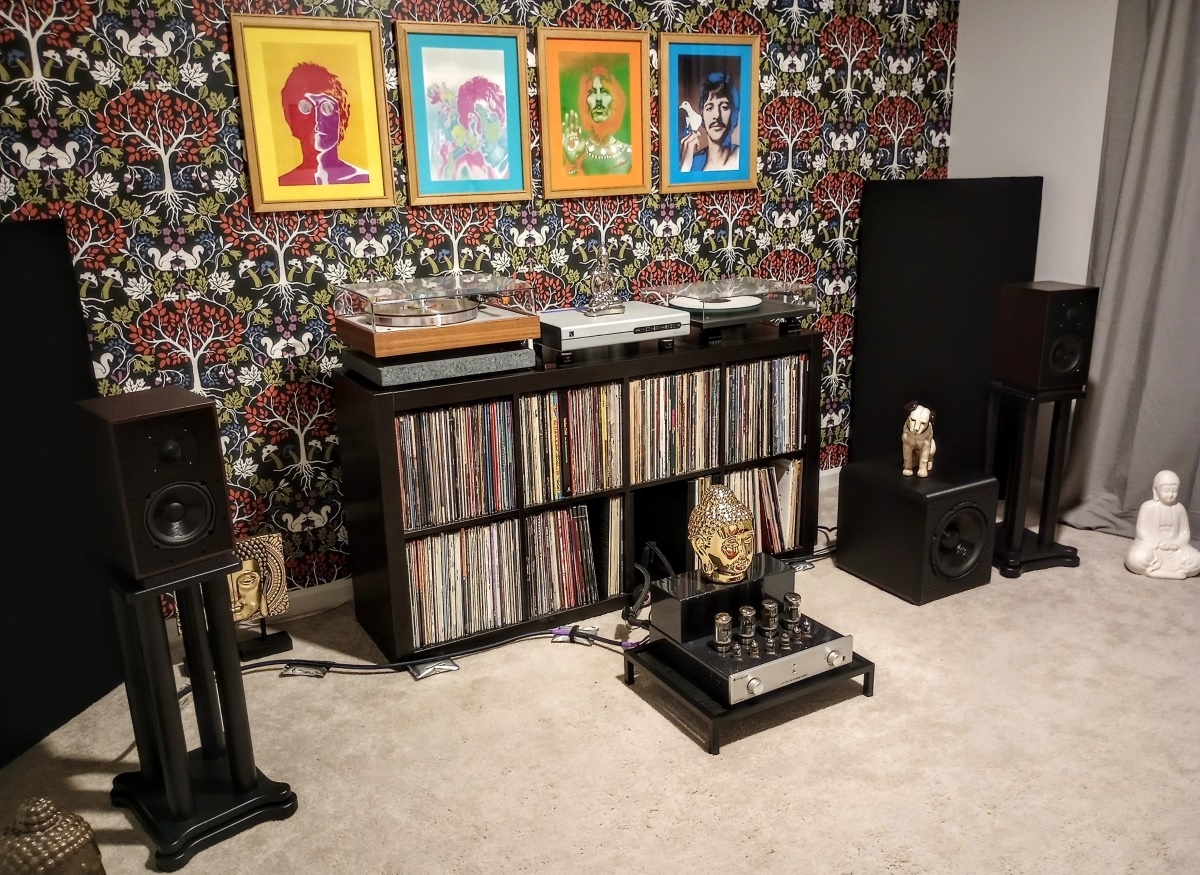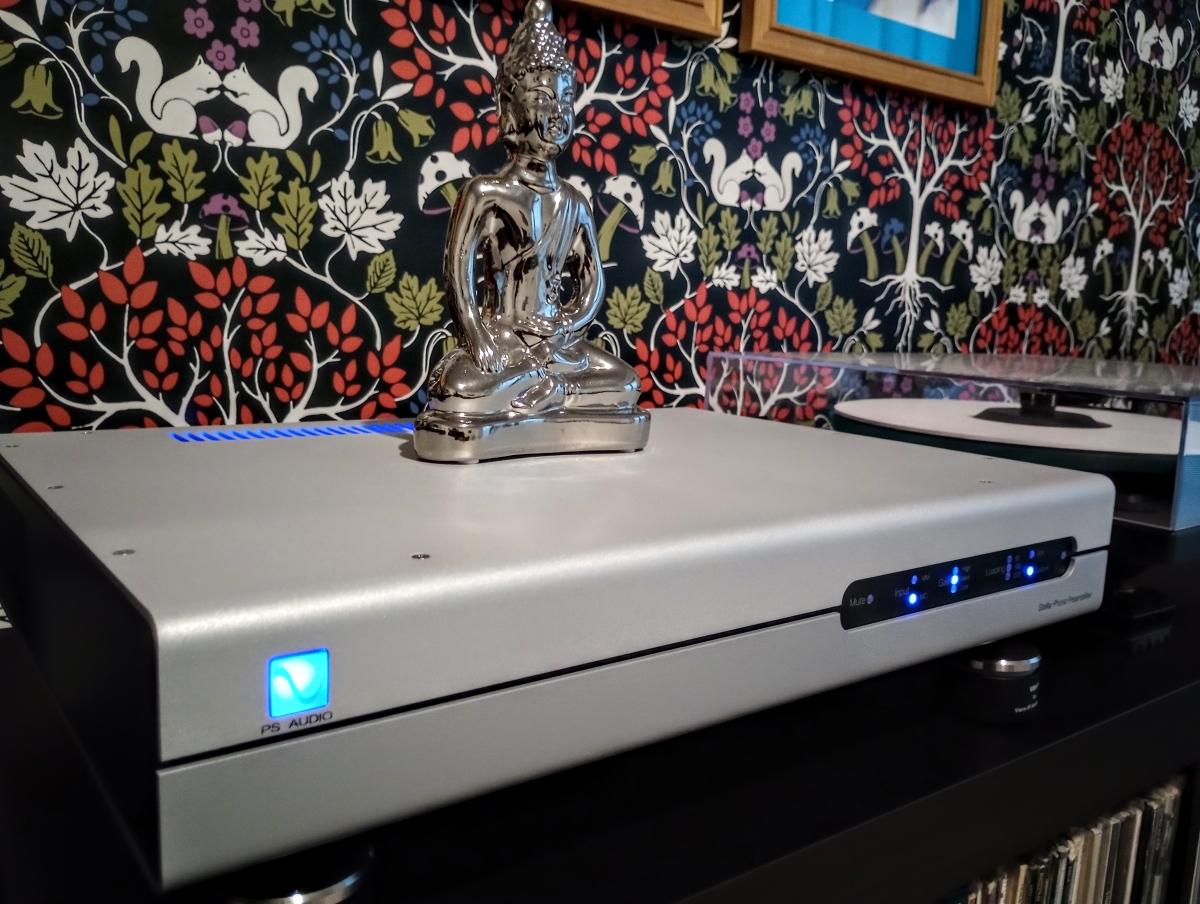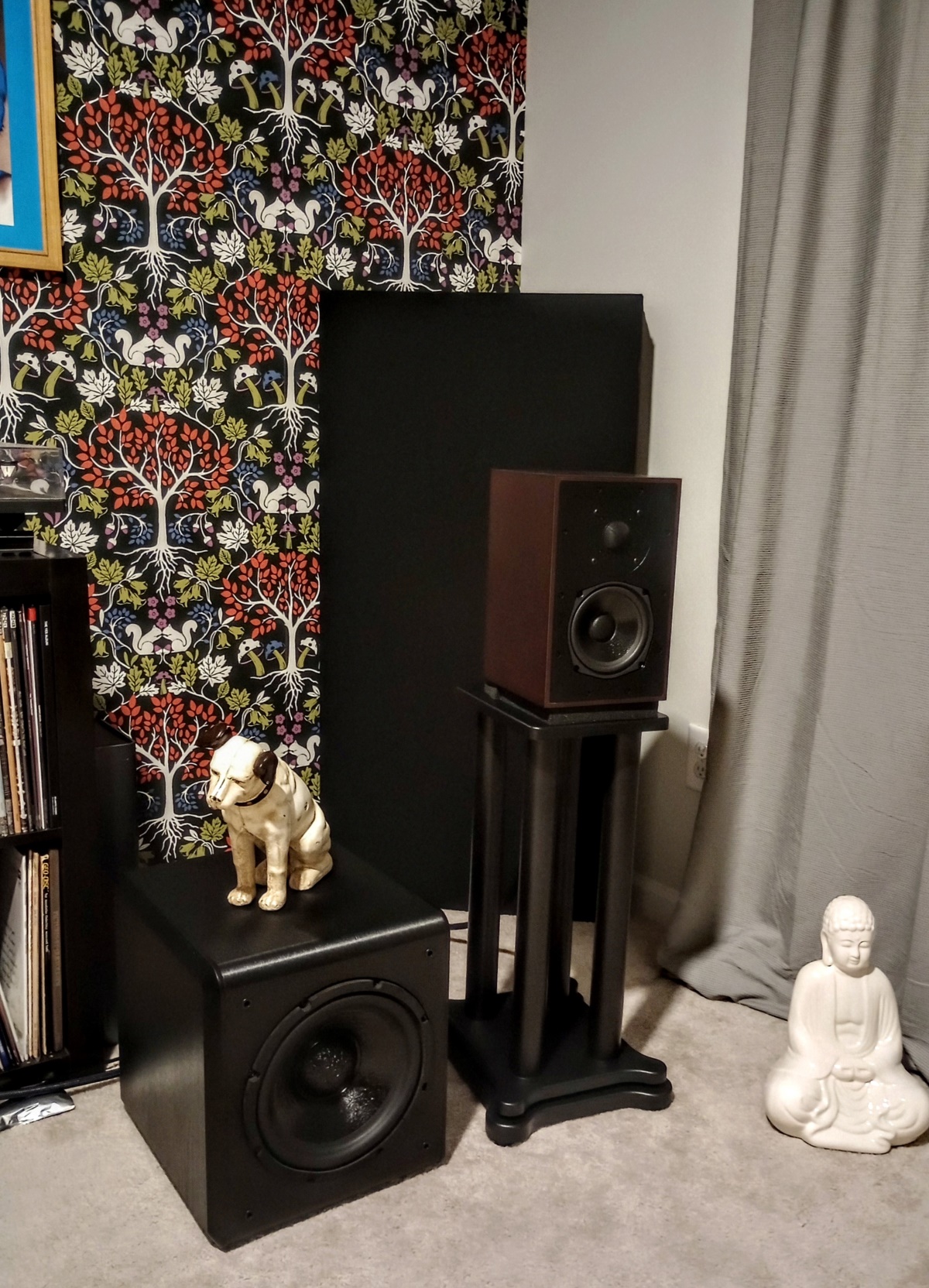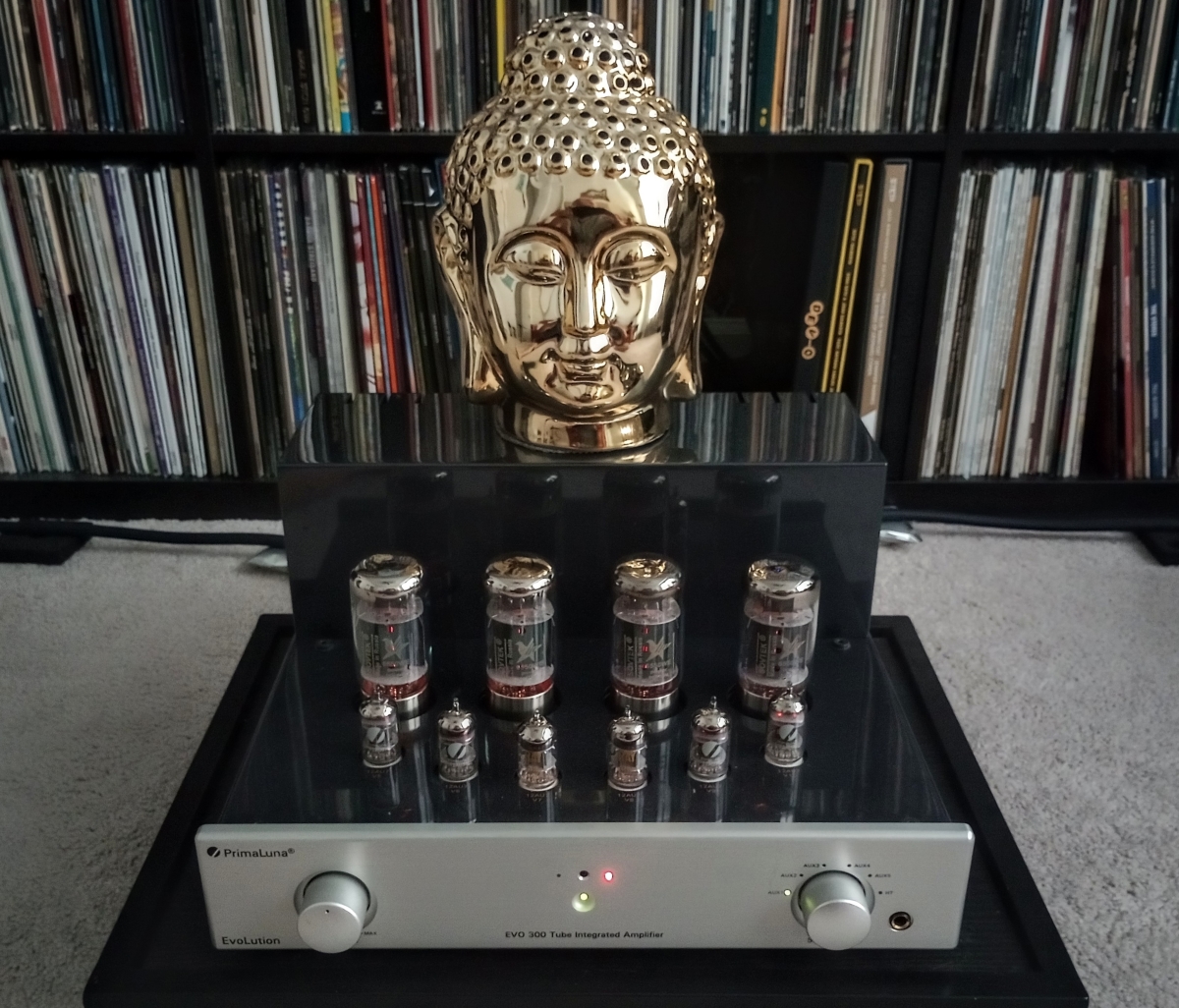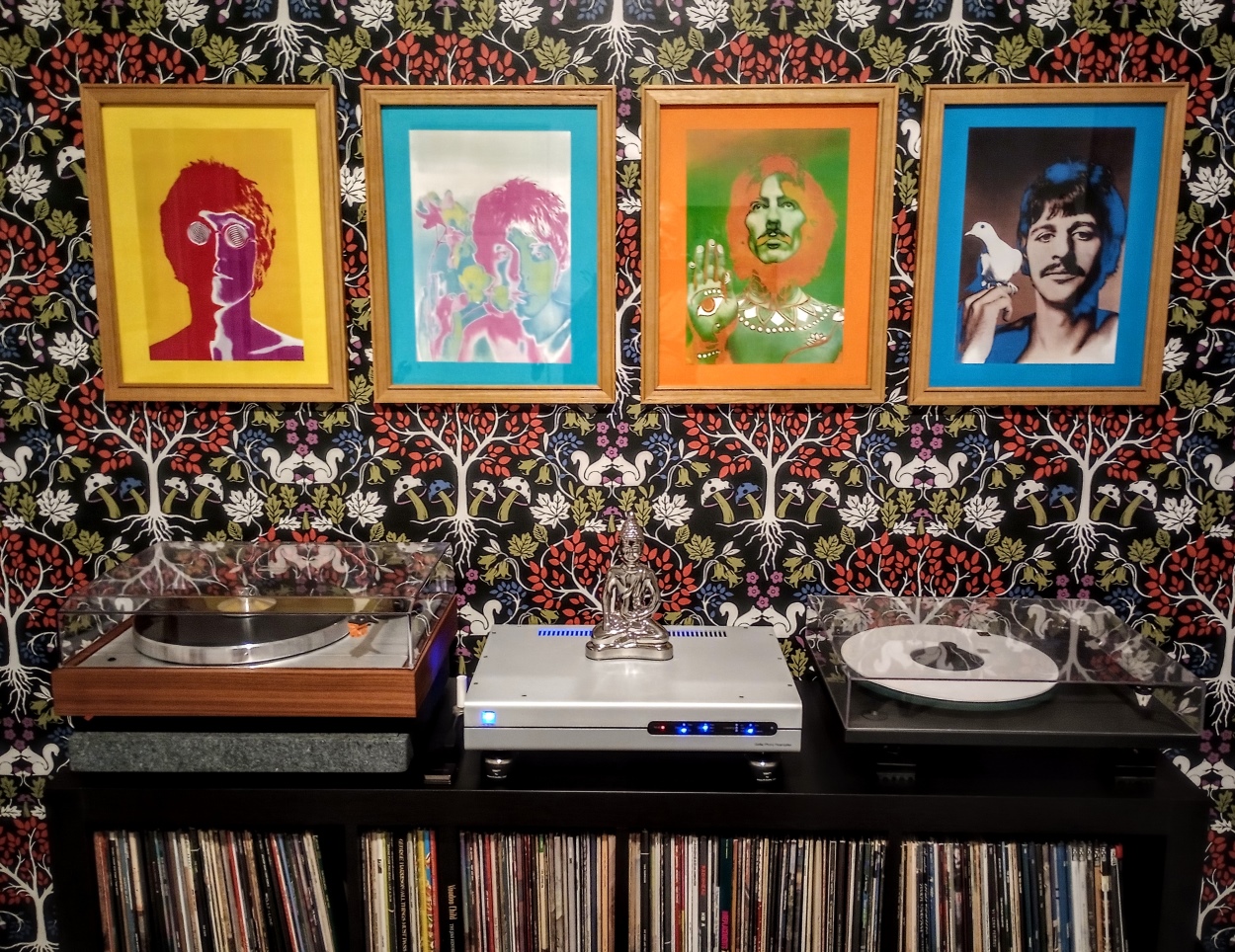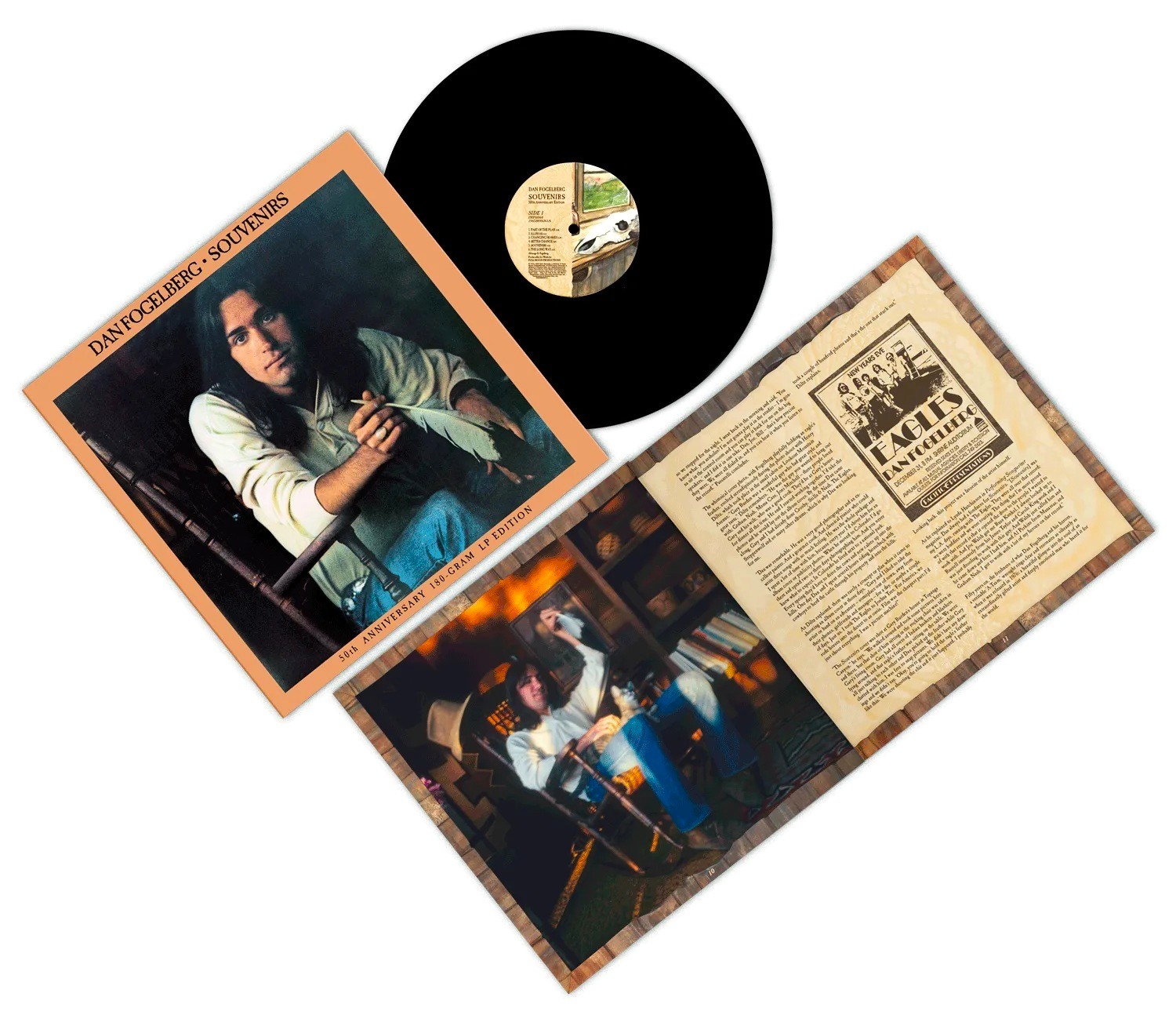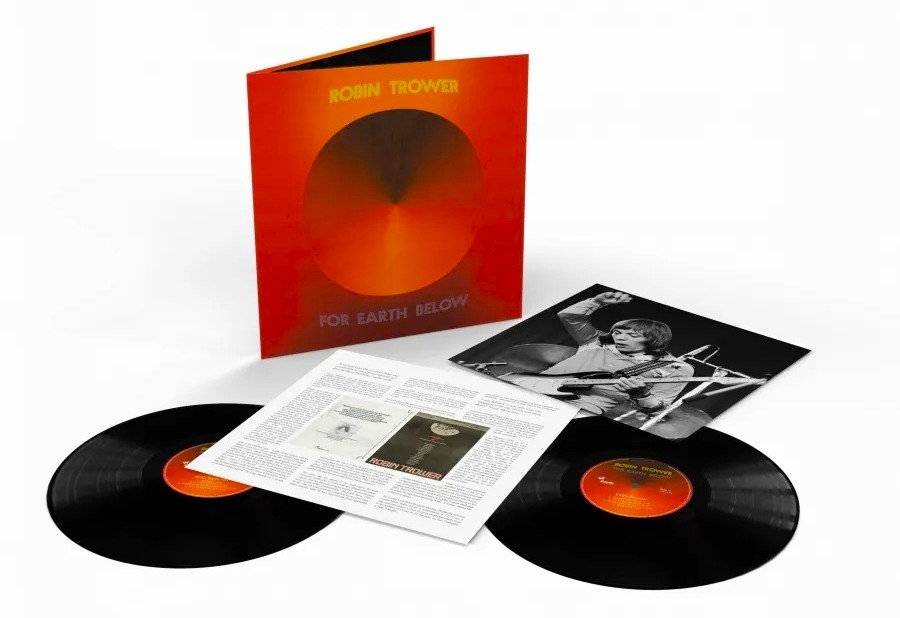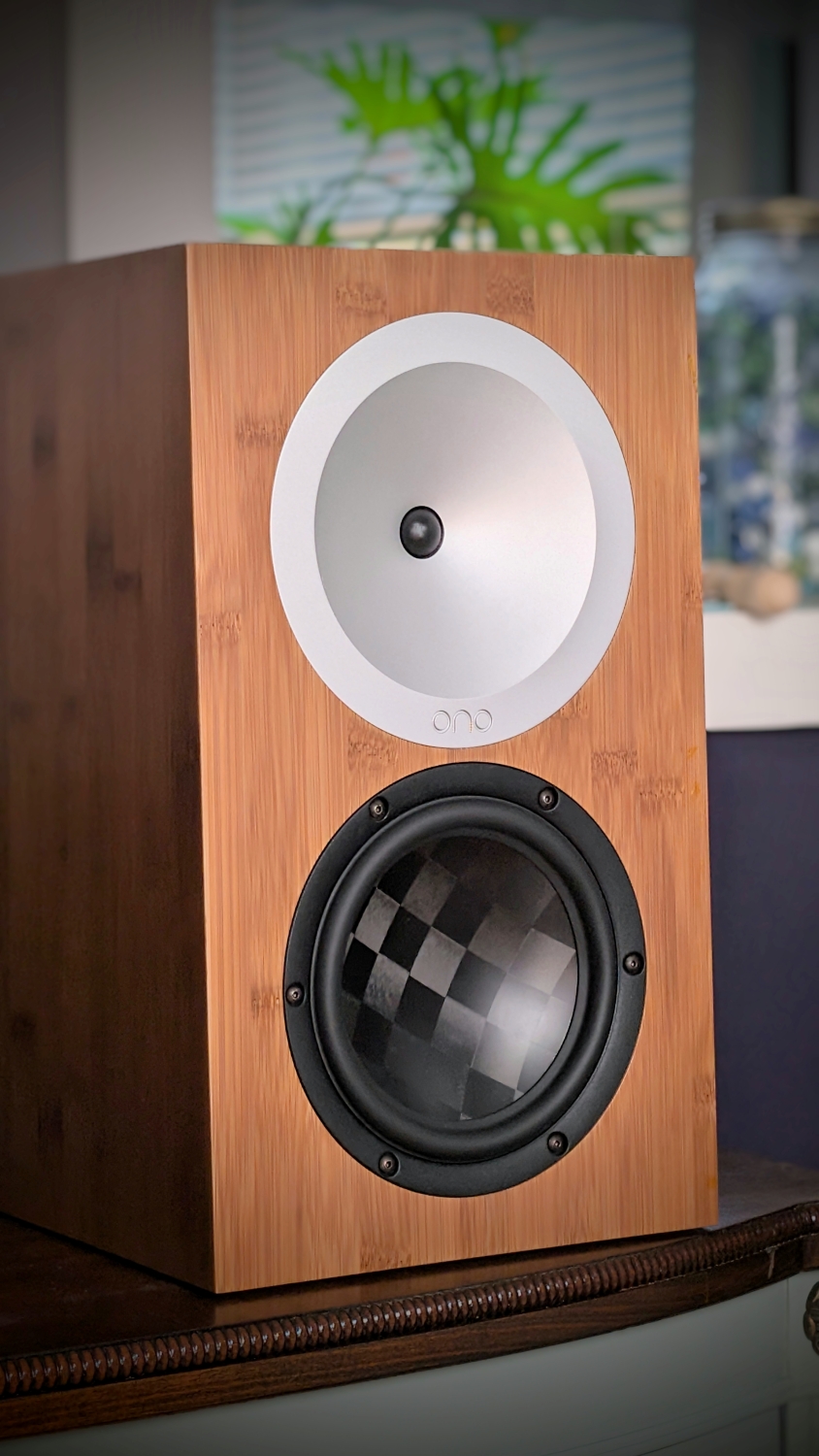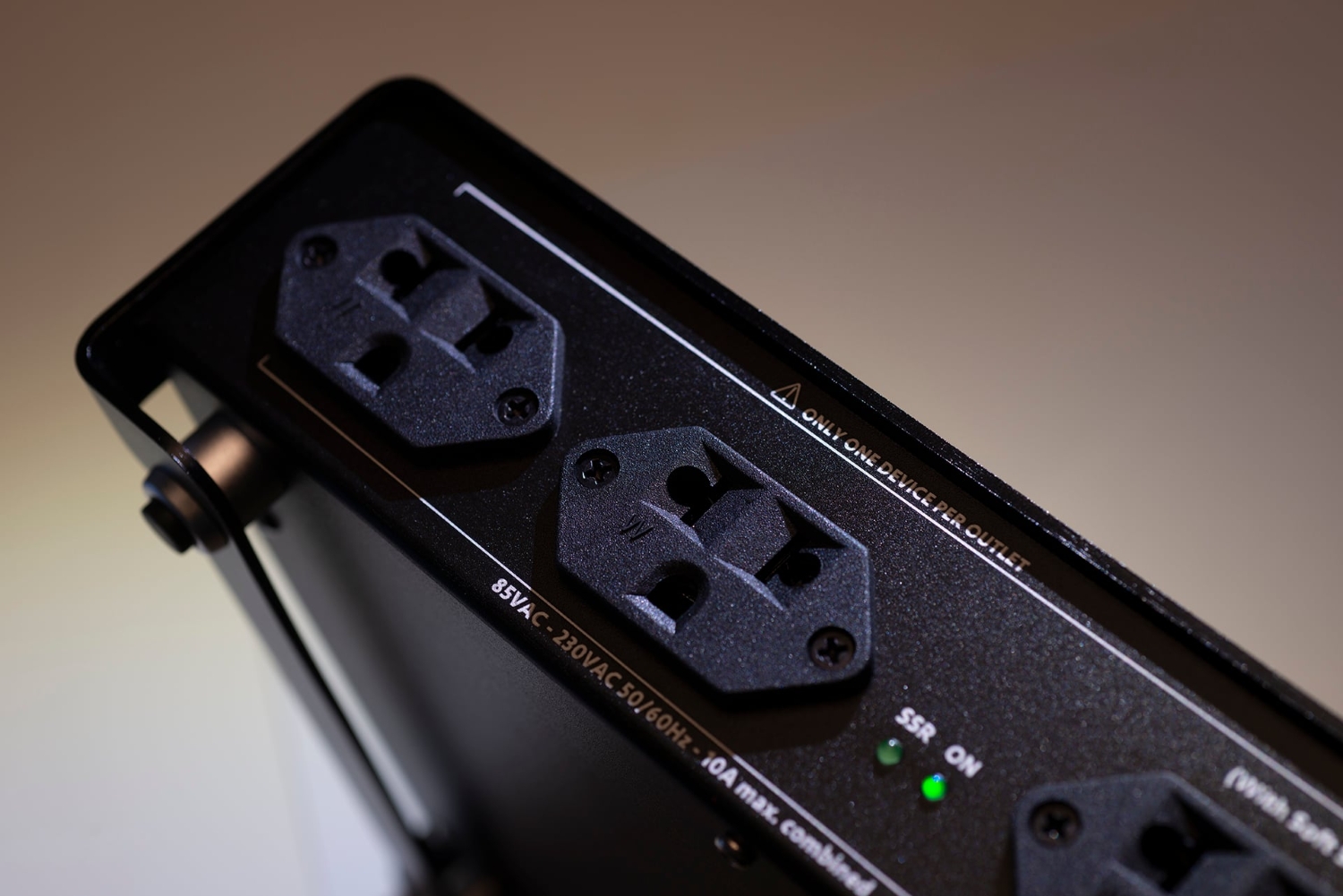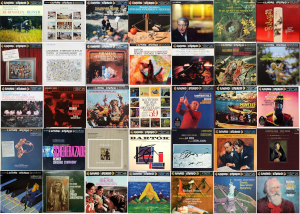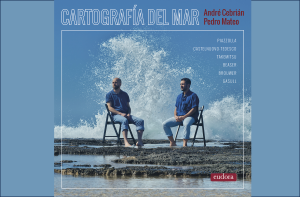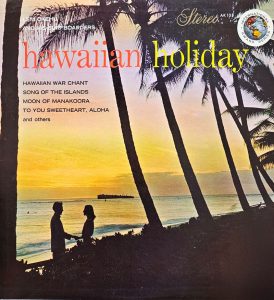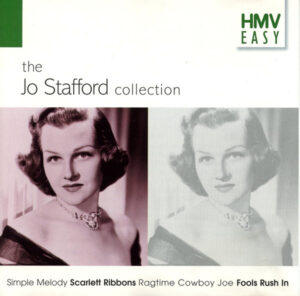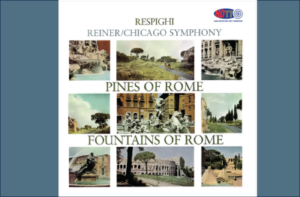Shore Fire Media has just announced the first two titles from a new LP reissue program, the Rhino High Fidelity Premium Vinyl Series. Rhino High Fidelity's planned release schedule will be quarterly throughout the year; the inaugural release features two outstanding titles, the eponymous debut album from The Cars, The Cars (1978, Elektra Records), and John Coltrane's seminal Coltrane's Sound (1964, Atlantic Records). Within weeks of each new quarterly release, Rhino will reveal the next group of album titles to come in the series. These very exclusive albums will only be available on rhino.com, and the current pair of LPs can be ordered HERE.
Matt Hanks of Shore Fire Media contacted me about this new reissue series, and reading his email basically stopped me in my tracks. To quote from the press release: "Rhino…[has been] pioneering the catalog business with award-winning audio releases for the past 45 years." What? 45 years—that had to be a misprint, I mean, Rhino reissues just started appearing somewhere in the mid-1990s, didn't they? Some investigation quickly gave me the facts: the Rhino label grew out of a small record shop in Los Angeles that was opened in 1974, and they started issuing specialty and novelty records in 1978. Over time and a multitude of mergers and acquisitions, the business eventually grew into Rhino Entertainment, becoming the specialty imprint that manages the catalog of the Warner Music Group. The riches of Warner's vast catalog of artists includes albums from the Warner, Elektra, Atlantic, and Parlophone labels, to name a very few. Rhino's been responsible for a multitude of really great reissue projects over the years, and the Rhino name has become synonymous with the singular level of quality and care they put into each of their reissues. So the existence of Rhino as a label has, in fact, been exactly 45 years!
Both of these excellent LP reissues arrived in heavy, tip-on, Stoughton-style jackets that are very faithful to the originals. Each album package is beautifully realized and features a stylized OBI strip that enhances their appearance and collectability. The high-gloss covers feature crisp, clear, perfectly defined original album artwork from the Elektra and Atlantic archives, and a new (but classic-looking) LP label design has been created for the Rhino High Fidelity imprint. On looks alone, these are among the finest LP reissues I've ever encountered, anywhere! The LPs were cut from the analog masters by the exceptionally talented and in-demand Kevin Gray at Cohearent Audio. The 180 gram LPs were pressed at Optimal in Germany, and the glossy, flawless LPs were inserted into their jackets in rice-paper-lined paper inner sleeves. That's a very nice touch—it's always a great feeling to remove a new LP from its sleeve without resistance, and without a trace of paper dust or static build-up.
The Cars, The Cars. 180 Gram LP, $39.98 MSRP
1978's The Cars arrived like a breath of fresh air, with garage band exuberance and a synth-driven, new wave sensibility. They burst onto a mainstream rock scene that had become increasingly stagnated by more corporate sounding dinosaur bands. Emerging from the beginnings of punk and new wave in Boston's fertile rock scene in 1976, The Cars' lineup featured principal songwriter, vocalist, and rhythm guitarist Ric Ocasek, bassist and vocalist Benjamin Orr, lead guitarist Elliot Easton, David Robinson on drums, and Greg Hawkes on keyboards, sax, and percussion. The band's music had a garage rock feel, but Ocasek's quirky and often eccentric lyrics contributed an art-house aesthetic that appealed to new wave fans. Many of their tunes were distinguished by a mixture of synth-based pop and guitars that highlighted the distinctly different vocal styles of the two leads, Ric Ocasek and Benjamin Orr. As The Cars gained traction on the Boston music scene, they were heavily pursued by both Elektra and Arista Records.
In early 1978, the band signed with Elektra Records, and The Cars was recorded that February at AIR Studios in London; legendary producer Roy Thomas Baker was at the controls. The album streeted in June, and was a surprise hit, quickly becoming a commercial and critical success. The Cars spawned the Top 40 singles "Just What I Needed," "My Best Friend's Girl," and "Good Times Roll," and the album was equally embraced by both Top 40 and Album-Oriented Rock radio. Rolling Stone cited The Cars as the best album of 1978 on their end-of-the-year charts, and the record has been certified six times platinum by the RIAA here in the US. Many of the songs that weren't singles got a significant amount of airplay, especially on AOR radio. In an interview included in Rhino's new reissue, Cars' guitarist Elliot Easton says the band joked about the album's popularity, and that perhaps The Cars should have been renamed The Cars Greatest Hits.
Side one opens with the three powerhouse singles, "Good Times Roll" and "My Best Friend's Girl," both featuring Ocasek on vocals, and "Just What I Needed," which was the lead single and featured the voice of Benjamin Orr. In the Atlanta area, where I lived at the time, Top 40 radio focused on the two poppy lead singles, "Just What I Needed" and "My Best Friend's Girl," while the AOR station I mostly listened to frequently played the more garagey "Good Times Roll." "I'm In Touch With Your World" has a quirky, almost Talking Heads-esque style, and Side one ends with the guitar-driven and more up-tempo, rollicking "Don't Cha Stop," both featuring vocals by Ocasek. Three charting singles makes for a pretty successful album side, huh?
That takes us to side two of The Cars, which in my opinion is perhaps the most perfectly formed album side that exists in a rock/new wave recording from the 1970s. All four songs on this side seamlessly segue into each other, and my local Atlanta AOR station (WKLS 96.1, 96 Rock) would regularly play the opening three tracks, back-to-back-to-back. Side two opens with Ocasek singing "You're All I've Got Tonight"; Easton provides the crunching guitar intro and a searing center solo, and Greg Hawkes supplies the synth bursts that punctuate the tune. As the opening track abruptly ends, the Benjamin Orr show begins, and he supplies the vocals for the remaining tracks. Staccato guitar/synth chords blast to announce "Bye Bye Love," which is a really fun tune that's among the peppiest on the entire album (and surprisingly wasn't chosen by the label as one of the singles). Benjamin Orr screams an energetic vocal that's nearly perfect, and another superb synth turn from Greg Hawkes takes us to the song's bridge. After the final verse and chorus, the tune ends abruptly with the same staccato bursts that started it. Another Hawkes' rolling synthesizer riff immediately opens the classic "Moving In Stereo," which is more keyboard-heavy and "new wavey" than perhaps any other tune on the album. Orr's vocal is seductively restrained here, and as the song reaches its conclusion, the ending synth figure overlaps the opening of the final track, "All Mixed Up." After hearing the first three tracks of side two played back-to-back for the first time on 96 Rock, I immediately bought the album and got tickets to see them live in 1979! "All Mixed Up" is maybe the best song on the album that nobody's ever heard, and Orr delivers another appropriately subdued vocal to the near-constant wail of Elliot Easton's guitar. Hawkes joins in on sax as the song fades to its conclusion. Side two of The Cars may not have generated any singles, but it's always the side I get the most listening pleasure from!
John Coltrane, Coltrane's Sound. 180 Gram LP, $39.98 MSRP
Within a period of two years (1959 - 1961), John Coltrane recorded a string of seven albums for Atlantic Records. Five of those albums were recorded in less than ten months, including Coltrane's Sound, which was recorded in 1960 during the same two-day group of sessions that also yielded the classic albums My Favorite Things and Coltrane Plays The Blues. Coltrane's quartet of the Atlantic period featured Trane on tenor and soprano saxes, McCoy Tyner on piano, Steve Davis on bass, and Elvin Jones on drums. Atlantic recorded them extensively in that relatively short period, before Creed Taylor of Impulse! Records lured Trane to the upstart label. Coltrane bolted immediately following his final session for Atlantic, Olé Coltrane in 1961. By the time Coltrane's Sound was eventually released by Atlantic in 1964, Impulse! had already streeted six classic Trane albums and had another in the can, ready to go!
John Coltrane was a prolific artist, and Atlantic Records followed the playbook of most other jazz labels of the day: they recorded him as often and as quickly as possible. As his work for Impulse! grew in popularity, Atlantic took advantage of the situation in mid-1964, and released their last album that featured his classic quartet from that period, Coltrane's Sound. Trane's star was on the rise, and Atlantic rushed the album release without his input or approval; they owned the recordings, and that was the way of things in the 1960's. Coltrane's Sound couldn't match the sheer fire of his Impulse! sides, but it harkens back to a time when Trane's playing was more melodic and structured. That said, this album serves as a definite precursor to the artistic growth he displayed during his Impulse! years: Coltrane's Sound is without doubt one of the most criminally underappreciated albums of John Coltrane's catalog.
The Side one opener is his cover of Jerry Brainin's "The Night Has a Thousand Eyes" from the 1948 movie of the same name. Trane's extensive soloing on this track shows hints of the greatness he'd soon achieve in his next artistic phase with Impulse!. Coltrane moves to soprano sax for "Central Park West," which is one of his most poignant compositions that regularly shows up on his best-of albums from the period. Side one ends with another original, "Liberia"; Trane returns to tenor sax and solos liberally against McCoy Tyner's superb pianisms. And this is one of the first recorded instances where drummer Elvin Jones plays one of his trademarked runouts at the tune's conclusion. Side two features Coltrane on tenor sax throughout, and McCoy Tyner kicks the side off with a beautiful intro to Johnny Green's classic ballad "Body and Soul." Trane solos melodically, but gives Tyner plenty of room, and their recording of the perennial chestnut may be the definitive jazz version. The quartet really stretches out on the Coltrane original "Equinox," which takes a very slow and deliberate pace; both Trane and Tyner solo extensively on the album's lengthiest tune. Tyner lays out for the trio number that closes the album, Coltrane's "Satellite." Trane solos furiously for the track's entire runtime, save for Elvin Jones' runout, which brings Coltrane's Sound to a thrilling conclusion.
Collectors will find the new Rhino High Fidelity reissues essential!
Click on my name in the header, and you can see the selection of equipment I used to evaluate these classic rock and jazz LPs. For my listening sessions, I used the tubed PrimaLuna EVO 300 tube integrated amplifier, playing over the KLH Model Five loudspeakers. The turntable for this session was the ProJect Classic EVO that's fitted with a Hana SL moving coil cartridge. Both LPs from Optimal were perfectly flat and the surfaces were pristine; the Hana SL tracked each LP with very few clicks and no appreciable groove noise, and the sound quality was exceptional. The LPs were easily among the quietest I've recently heard, and were typical of my recent experiences with pressings sourced from Optimal. Listening to both albums through tubes and classic acoustic-suspension loudspeakers lent my listening sessions an air of vintage authenticity that really took me back!
This new series from Rhino High Fidelity is what keeps guys like me in the analog game—these reissues are among the finest examples of the current LP state-of-the-art, and are must-haves for collectors! I buy LPs for the analog experience and their organic sound quality, but part of that experience is the tactile connection of holding a full-sized album jacket in your hands. While also exploring the often copious album notes (which are actually readable!), along with checking out the perfect reproductions of the original art design and photography. The photography is crystal clear on these album jackets, which is a rarity for reissues these days; they sometimes look as though the album art was sourced from a CD cover, or worse. And there are extras included in this perfectionist series, like the detailed, fold-out inserts, which feature recording notes, informative essays, and interviews from artists and session personnel.
In terms of being absolutely essential, I'd give The Cars the slightest nod ahead of Coltrane's Sound. Roy Thomas Baker's production really sparkles on this album; it's no wonder it was such a runaway best seller. The Cars rates among the greatest debut albums of all times, and is one of the top albums from the period: the album almost single-handedly helped re-energize rock music in the late 1970s. The new Rhino High Fidelity reissue is undoubtedly the finest version of this classic album that exists.
I don't mean to denigrate Tom Dowd's legend, but I'm less a fan of his production values on Coltrane's Sound, which are a bit dated when compared to the sound Trane was getting from Bob Thiele at Impulse! Records, and at essentially the same point in time in the early 1960's. That said, Kevin Gray has done a fantastic job, and this album has never sounded better than it does here; the Rhino LP absolutely smokes my remastered CD version.
Overall, Rhino gets an A+ for the first two entries in the series; that only increases my excitement for what's to come! The LPs are strictly limited to 5,000 numbered copies; as meticulous as these reissues are, I can't imagine anyone who wouldn't jump at the chance to own them. A word to the wise for serious collectors: I'm fairly particular when it comes to storing my LPs, and I generally place them in premium Japanese resealable outer sleeves the minute the shrinkwrap comes off. Those premium outer sleeves are a tad larger overall—as are these new reissues—so you'll need one to fully protect your investment. And not squeeze them too tightly! This is an auspicious start for Rhino High Fidelity, and both LPs come very highly recommended!
Rhino – rhino.com
All images courtesy of Rhino, Shore Fire Media, and the author




